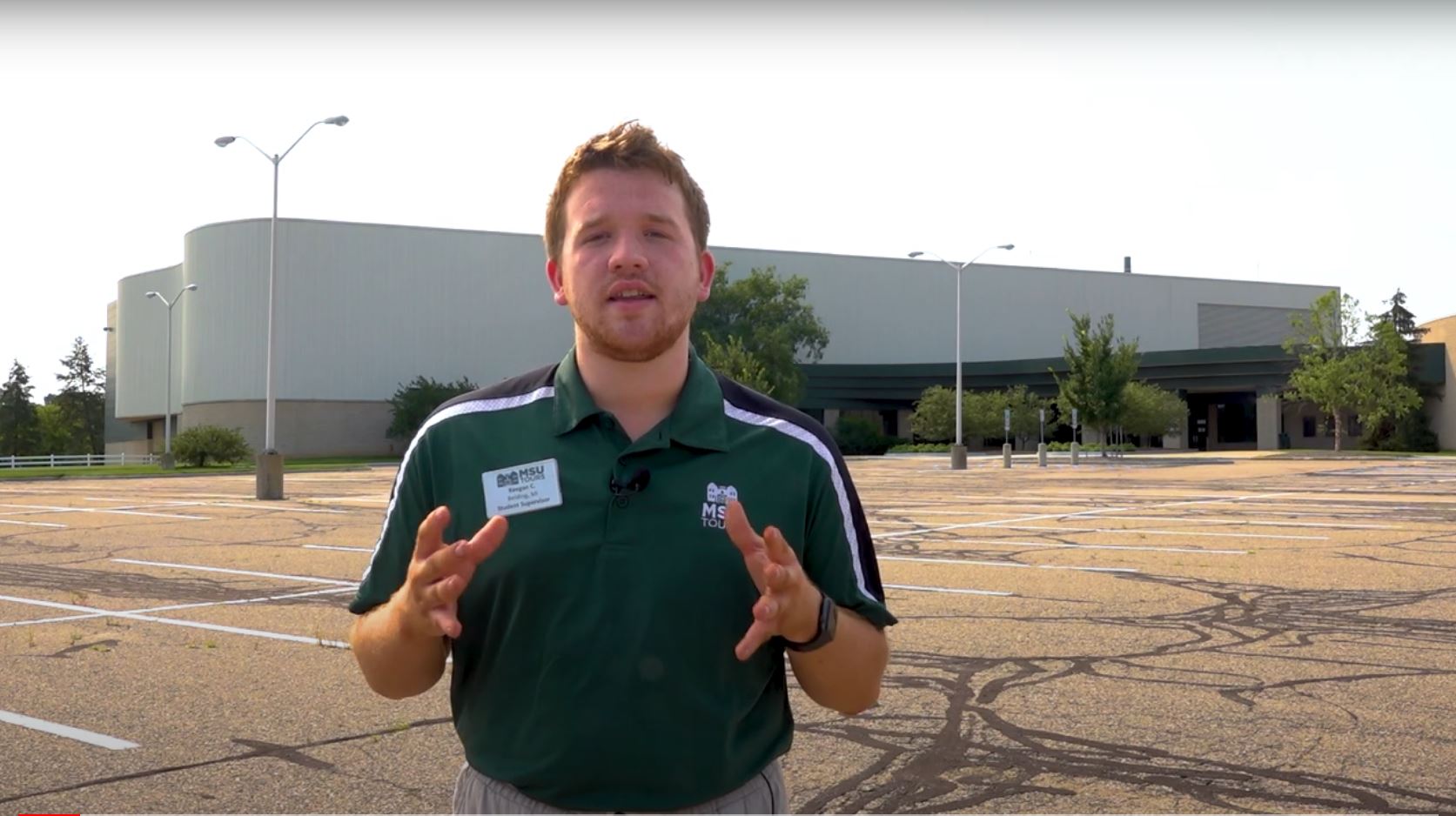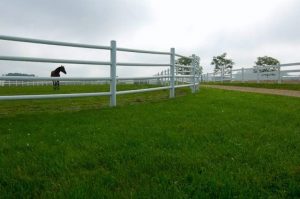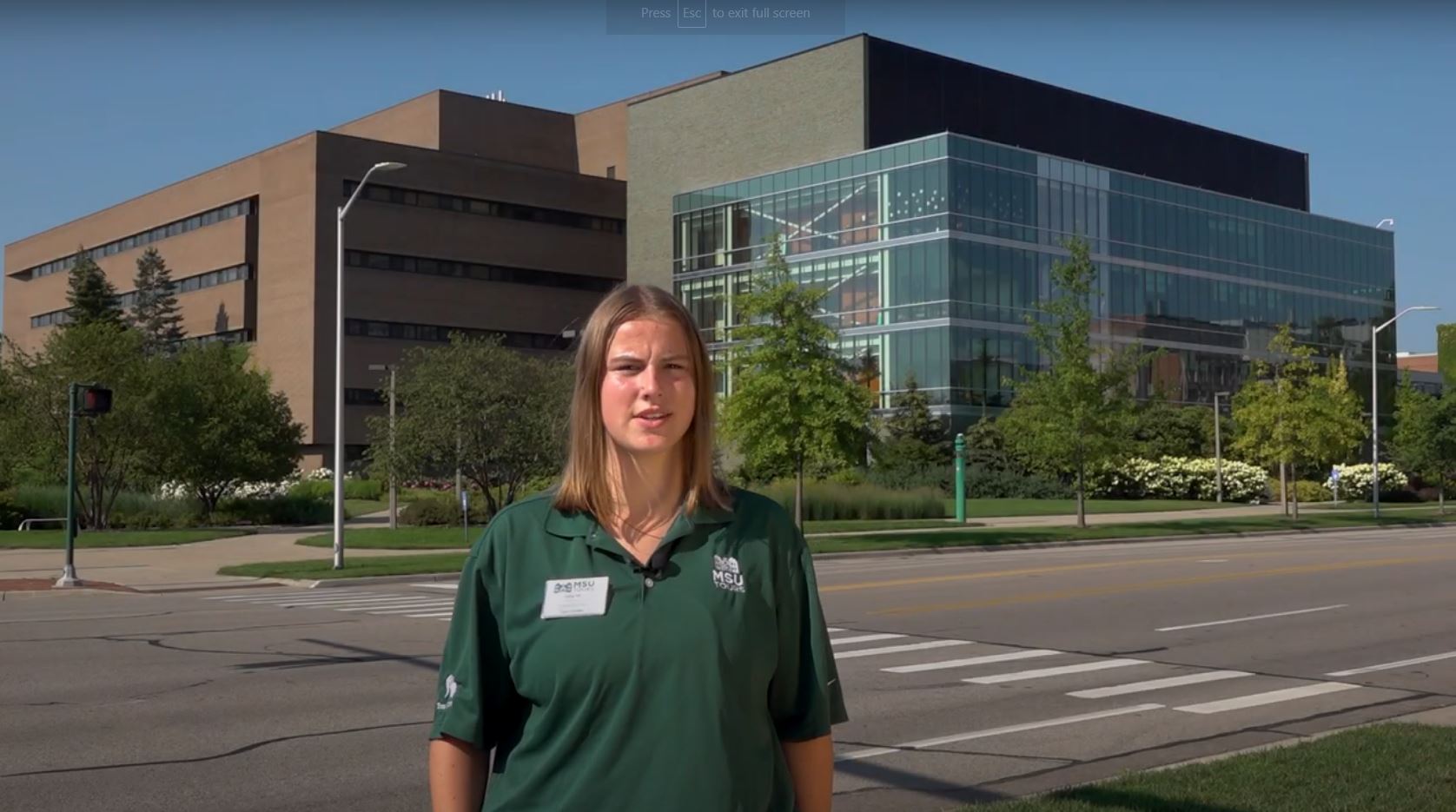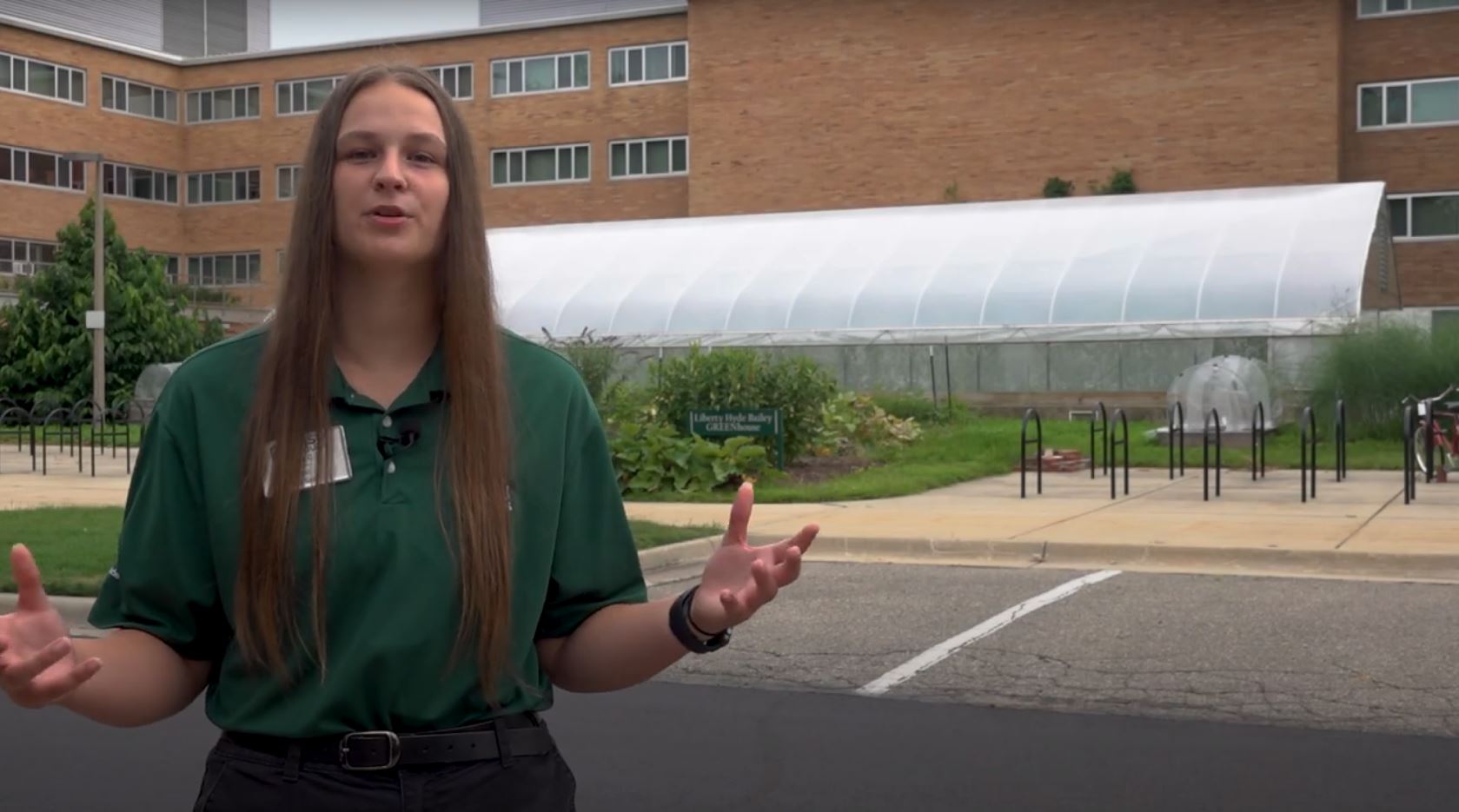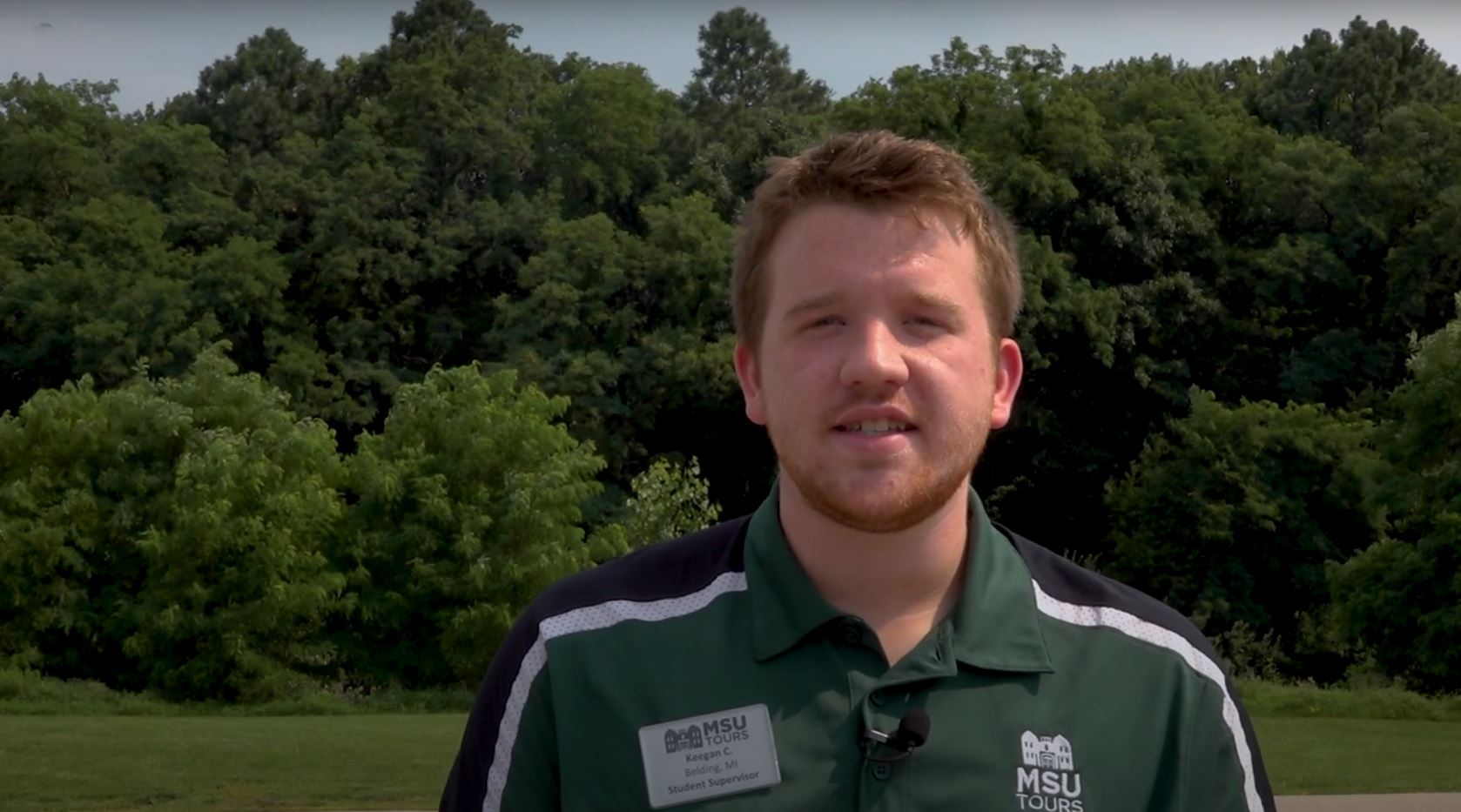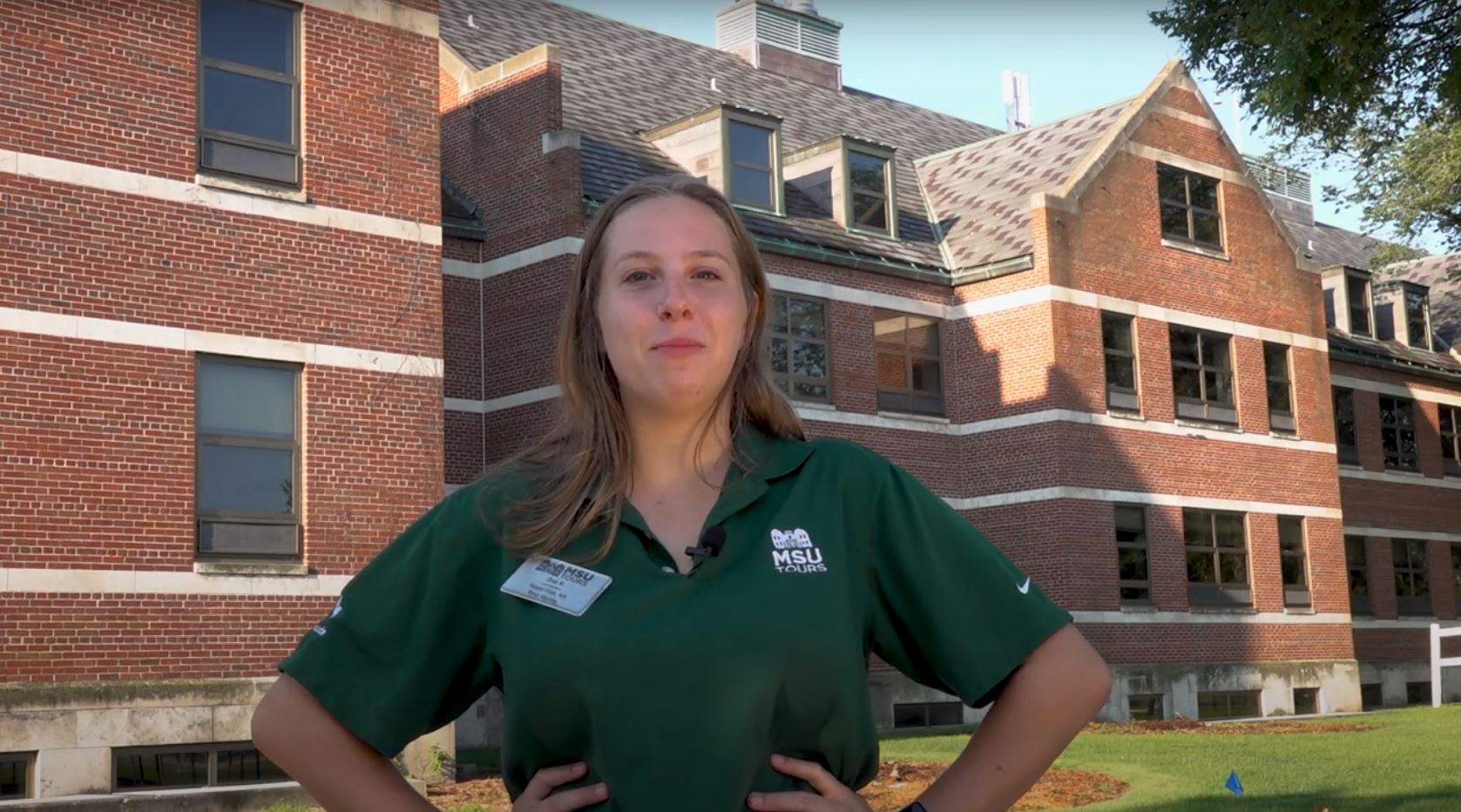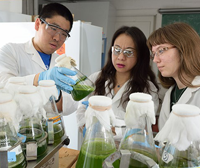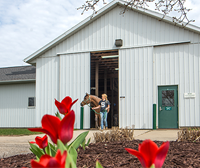
Farm Bureau Pavilion at Michigan State University
State-of-the-art facility for agriculture and livestock education and host of 100+ community events
The Farm Bureau Pavilion at Michigan State University opened in December 1996 and is a 100,000+-square-foot state-of-the-art facility containing an exhibit hall, livestock arena, auditorium and classrooms used for hands-on teaching, judging and evaluation, and various livestock activities. Hosting approximately 100 events each year, including 4-H and FFA events, the facility is also home to the Spartan Stampede Rodeo and the Michigan Livestock Exhibition. There is even an onsite licensed campground with over 96 campsites, making it the perfect location for the annual RV Show as well.
As part of its mission, the Department of Animal Science incorporates the pavilion and other facilities into three mission areas: teaching, research and outreach. Additional facilities that work in partnership with the Farm Bureau Pavilion include the South Campus Teaching and Research Centers, South Campus Animal Farms, W.K. Kellogg Biological Station, Lake City Research Center and Upper Peninsula Research and Extension Center. Students are equipped with hands-on experience with livestock and farm practices and have the opportunity to work on the farms as part of their academic work.
Horse Teaching & Research Center
MSU has one of the oldest continuous Arabian horse breeding programs in the United States. The center works with the Farm Bureau Pavilion to educate the next generation of students.
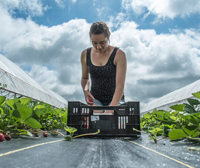
Plant and Soil Sciences Building
MSU is a leader in plant sciences, offering amazing resources, programs and research opportunities.
Surrounded by the Horticulture Gardens and not far from the Baker Woodlot and Rachana Rajendra Neotropical Migrant Bird Sanctuary, the Plant and Soil Sciences Building puts plant, soil and microbial science students at the forefront of world-class academic opportunities. Complete with roughly 90,000 square feet of greenhouse space and nearly 200 growth chambers, students who graduate in this field are prepared for a variety of different career opportunities in agronomic sciences or turfgrass management.
90K
square feet of greenhouse space
MSU is also home to AgBioResearch, which funds the research of more than 325 scientists. These scientists conduct research in on-campus facilities and at 14 outlying research centers across the state of Michigan. Undergraduate students can conduct research of their own with the help of their peers and department faculty and are also responsible for caring for the countless plant species growing in the greenhouses around campus.
Plant growth research
The Plant and Soil Sciences Building houses nearly 200 growth chambers for researching plants and seeds.
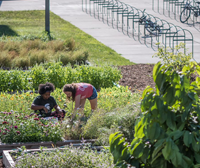
Bailey GREENhouse
The perfect place to study the production of organic produce and sustainable food systems
Nestled outside of Bailey Hall in Brody Neighborhood, the Bailey GREENhouse is a passive solar greenhouse (also known as a hoophouse). The Bailey GREENhouse is used to produce certified organic produce. It is also the site of a variety of student projects throughout the year, including vermicomposting, urban farm production and management, and a collaboration with MSU’s first student-run business, Land Grant Goods. The Student Organic Farm uses market garden-style production systems designed to produce significant quantities of produce to feed members of the MSU community, such as strawberries, rhubarb, lavender and more.
The GREENhouse is used and maintained by a group of students in the Residential Initiative on the Study of the Environment (RISE), one of the living-learning communities on campus, to enhance their opportunities for hands-on experience in and out of the classroom. Students live in Bailey Hall and earn out-of-classroom experience by caring for the entire edible landscape. Incoming first-year students from all academic backgrounds who are interested in the pursuit of a more sustainable food system are encouraged to apply to RISE when they submit their application.
Bailey GREENhouse
The Bailey GREENhouse was built in partnership with Residential and Hospitality Services, the Department of Community Sustainability, RIDE and the Student Organic Farm.
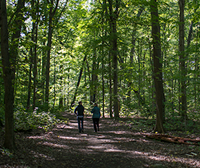
Baker Woodlot
Study at a university that is a leader in protecting our natural resources
MSU has several park-like natural, protected areas around campus and is a living-learning ecosystem and research laboratory. The Baker Woodlot is a 73-acre natural woodlot area in the south-central section of campus and includes the Rachana Rajendra Neotropical Migrant Bird Sanctuary (RRNMBS). Named after Rachana Rajendra, a bird enthusiast and Lansing area resident, the RRNMBS is home to more than 50 species of birds annually.
With approximately 20,000 trees calling campus home, including some predating the founding of MSU (formerly the Agricultural College of the State of Michigan) in 1855, MSU’s campus arboretum serves an important role in educating Spartans. Natural resources and sustainable environments programs take advantage of this and connect their students with research and hands-on experiences that help address environmental and sustainability issues from a variety of perspectives.
Students who graduate with a degree focusing on natural resources and sustainable environments go on to have careers in areas like fisheries and wildlife, environmental economics and management, sustainable parks, recreation and tourism, forestry and more.
Beloved bird sanctuary
One of the birds most commonly found in the sanctuary is the American robin, the state bird of Michigan.
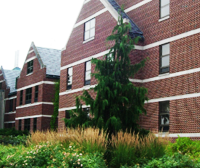
Anthony Hall
If you’re interested in studying animal science, make sure to check out Anthony Hall!
Connected to the eastern side of the Engineering Building, Anthony Hall is home to the Department of Animal Science, with over 67,000 square feet of the hall dedicated to research, education, outreach/extension and meat judging. In the Meat Laboratory, there are countless opportunities for undergraduate students to get involved in research during their first year as a Spartan. Animal science students can also take courses and gain real-life experience at the MSU Pavilion for Agriculture and Livestock Education and the many teaching farms on campus.
Students with a degree in animal science go on to have careers in animal production and management, food processing, animal feed, environmental and health industries, research and much more. Ranked #8 in the world for plant and animal science by U.S. News & World Report, MSU has a rich and diverse program for students who want to pursue a career in animal science.
MSU Dairy Store
Anthony Hall is home to the main Dairy Store on campus and is the site of the Dairy Foods Complex and the Dairy Processing Plant. Ice cream and other dairy products are made on campus by staff and student employees every day.
Agriculture and Environment Tour
MSU is one of the top places in the world to study agriculture and the environment. The campus itself is a living-learning ecosystem and research laboratory, giving students incredible hands-on learning opportunities.
Tour Stops
Click a map icon or choose from the list below.


